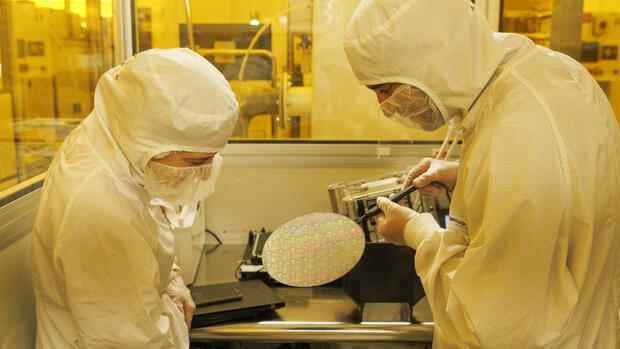Munich Toyota customers and investors are not used to this: the Japanese car company cannot produce half a million vehicles as planned in the current fiscal year. The reason: the semiconductors are missing. The supply bottlenecks that have been going on for two years now have no end and are affecting even the world’s largest car manufacturer.
There is no sign of a quick improvement, because the manufacturers of car chips are fully booked. Jean-Marc Chéry, head of ST Microelectronics, emphasizes that all factories will be working at full capacity by early 2024. Europe’s largest chip company is investing more than ever in additional capacities.
The boom in electric mobility and a large number of assistance systems in vehicles are creating a flood of orders. ST Microelectronics and competitors such as NXP or the Munich-based Dax group Infineon have to put off the buyers.
These are problems that Qualcomm, Intel and Micron would like to see. Because while the manufacturers of car chips can no longer keep up with production, the companies that supply the PC and mobile phone manufacturers are receiving cancellations from their customers on a large scale.
Top jobs of the day
Find the best jobs now and
be notified by email.
Qualcomm, the leading provider of smartphone chips, is expecting a maximum of ten billion dollars in sales in the current quarter, around two billion less than analysts had predicted. Because the smartphone business is down, just like sales of computers. “Further deterioration in the macroeconomic environment and ongoing Covid restrictions in China have led to a weakening of demand across all regions,” Qualcomm said.
The chip industry is therefore in a curious situation: the industry is struggling with delivery bottlenecks and overproduction at the same time. The problem is difficult to solve in the short term because the manufacturing processes are extremely diverse. Production lines that are underutilized cannot simply be converted to produce scarce components there.
>> Read here: Federal government plans to agree to China purchase of chip production – warn secret services
The semiconductor manufacturers are reacting to the challenges in completely different ways. The corporations affected by the chip glut are radically cutting back on their investments. The second largest memory chip producer in the world, SK Hynix from South Korea, wants to cut the budget for new machines and factories by half in 2023.
The memory chip manufacturers save iron
But that doesn’t have to be the last word, it could even be just the beginning of the austerity measures. “We’re hoping that the market will stabilize to some extent in the second half of next year, but we’re not ruling out the possibility of a prolonged downturn,” said sales chief Kevin Noh. The US competitor Micron has already announced that it will cut investments by 30 percent.
In the short term, companies are stuck with overcapacities despite the cuts. Because a chip factory can only be operated completely or not at all. According to Gartner analyst Alan Priestley, a plant is not economically viable with less than 85 percent utilization.
Therefore, these days, as demand falls, prices fall massively. That will soon be reflected in the numbers: Micron assumes that sales in the current quarter will shrink by around a quarter.
Even the delivery bottlenecks cannot be changed immediately. Because, according to Priestley, the producers would have to rethink. “We need more investment in more mature manufacturing processes,” says the expert. These are needed in particular for car chips.
So far, the companies have always built plants with the most modern technologies and continued to operate them for decades, even if the processes were getting old. That was enough to satisfy the demand for older chip generations.
NXP is growing rapidly
Now, however, the demand for such components is so great that additional plants are needed, says Priestley. Otherwise the corresponding chips would remain scarce for a long time. So far, however, contract manufacturers such as TSMC from Taiwan have been reluctant to spend billions on such factories.
Economically, it has not done any harm for the autochip manufacturers so far that they have to allocate the coveted goods to the customers. The industry speaks of allocation. The Dutch manufacturer NXP expects sales to increase by 30 percent in the fourth quarter, while ST calculates growth of 24 percent. Rarely has the gap between losers and winners in the chip industry been as wide as it is these days.
More: How the chip companies in Europe can close a dangerous gap in the supply chain


